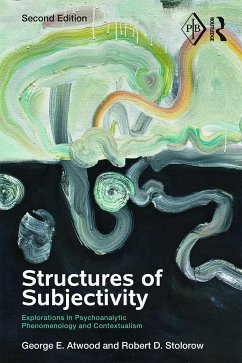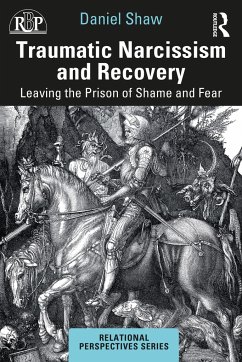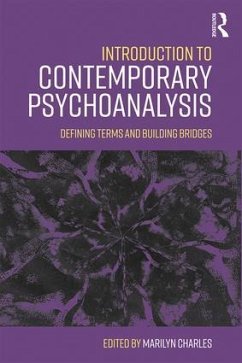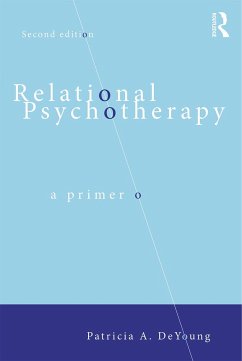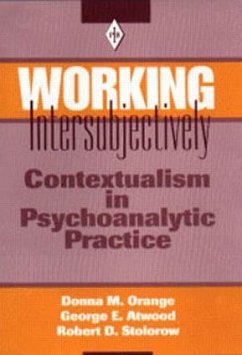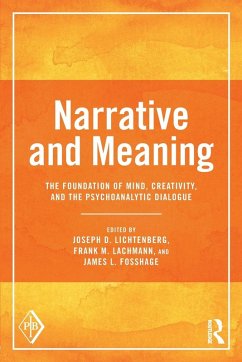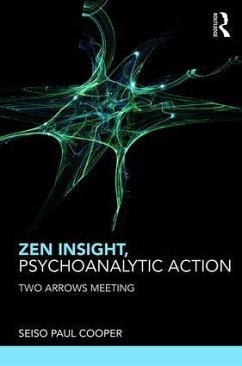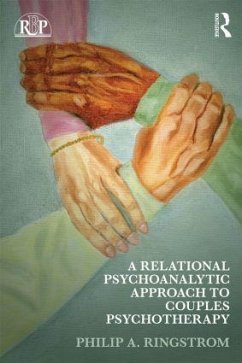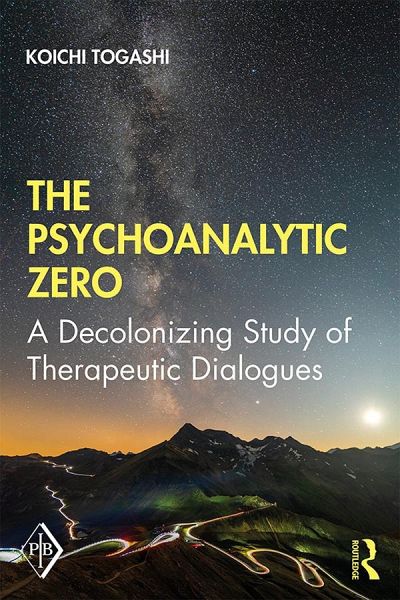
The Psychoanalytic Zero
A Decolonizing Study of Therapeutic Dialogues
Versandkostenfrei!
Versandfertig in 6-10 Tagen
41,99 €
inkl. MwSt.
Weitere Ausgaben:

PAYBACK Punkte
21 °P sammeln!
Winner of the 2020 Gradiva AwardThe Psychoanalytic Zero: A Decolonizing Study of Therapeutic Dialogues is written from the unique perspective of a Western-trained Asian psychoanalyst and applies principles of Eastern philosophy to understand the psychoanalytic relationship, psychoanalytic processes, and their uses-and limitations-for alleviating human suffering.Bringing a unique Eastern perspective to a previously Western-dominated discipline and framed within the current relational and ethical trends in psychoanalysis, the book enables readers to develop a language for understanding an Easter...
Winner of the 2020 Gradiva Award
The Psychoanalytic Zero: A Decolonizing Study of Therapeutic Dialogues is written from the unique perspective of a Western-trained Asian psychoanalyst and applies principles of Eastern philosophy to understand the psychoanalytic relationship, psychoanalytic processes, and their uses-and limitations-for alleviating human suffering.
Bringing a unique Eastern perspective to a previously Western-dominated discipline and framed within the current relational and ethical trends in psychoanalysis, the book enables readers to develop a language for understanding an Eastern ethical viewpoint and explore how this language can change our awareness of psychoanalytic practice and human suffering. Chapters are devoted to the Eastern concepts of nothingness, emptiness, surrender, sincerity, silence and narrative, and issues including existential "guilt of being," trauma, contingency, informed consent, the sense of being human, and uncertainty. Discussions are illustrated and illuminated through vivid recreations and careful elaboration of therapeutic case studies with traumatized patients. The studies demonstrate the process by which patients regain a sense of being human. This enriched perspective will, it is hoped, help the analyst treat traumatized patients who are unable to relate to others, and who do not experience themselves as being human.
The Psychoanalytic Zero will enrich an analyst's sensitivity to the appearance of the moment without context-the psychoanalytic zero-which opens infinite opportunities for continued growth in a psychoanalytic relationship. It will be of great appeal to psychoanalysts and psychoanalytic psychotherapists interested in self-psychological, intersubjective, and relational theories.
The Psychoanalytic Zero: A Decolonizing Study of Therapeutic Dialogues is written from the unique perspective of a Western-trained Asian psychoanalyst and applies principles of Eastern philosophy to understand the psychoanalytic relationship, psychoanalytic processes, and their uses-and limitations-for alleviating human suffering.
Bringing a unique Eastern perspective to a previously Western-dominated discipline and framed within the current relational and ethical trends in psychoanalysis, the book enables readers to develop a language for understanding an Eastern ethical viewpoint and explore how this language can change our awareness of psychoanalytic practice and human suffering. Chapters are devoted to the Eastern concepts of nothingness, emptiness, surrender, sincerity, silence and narrative, and issues including existential "guilt of being," trauma, contingency, informed consent, the sense of being human, and uncertainty. Discussions are illustrated and illuminated through vivid recreations and careful elaboration of therapeutic case studies with traumatized patients. The studies demonstrate the process by which patients regain a sense of being human. This enriched perspective will, it is hoped, help the analyst treat traumatized patients who are unable to relate to others, and who do not experience themselves as being human.
The Psychoanalytic Zero will enrich an analyst's sensitivity to the appearance of the moment without context-the psychoanalytic zero-which opens infinite opportunities for continued growth in a psychoanalytic relationship. It will be of great appeal to psychoanalysts and psychoanalytic psychotherapists interested in self-psychological, intersubjective, and relational theories.






